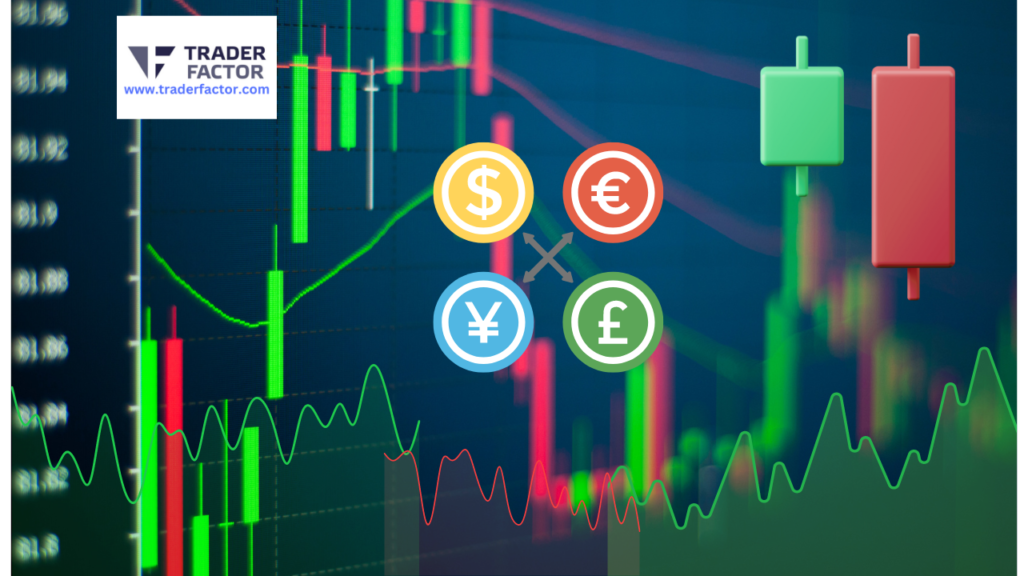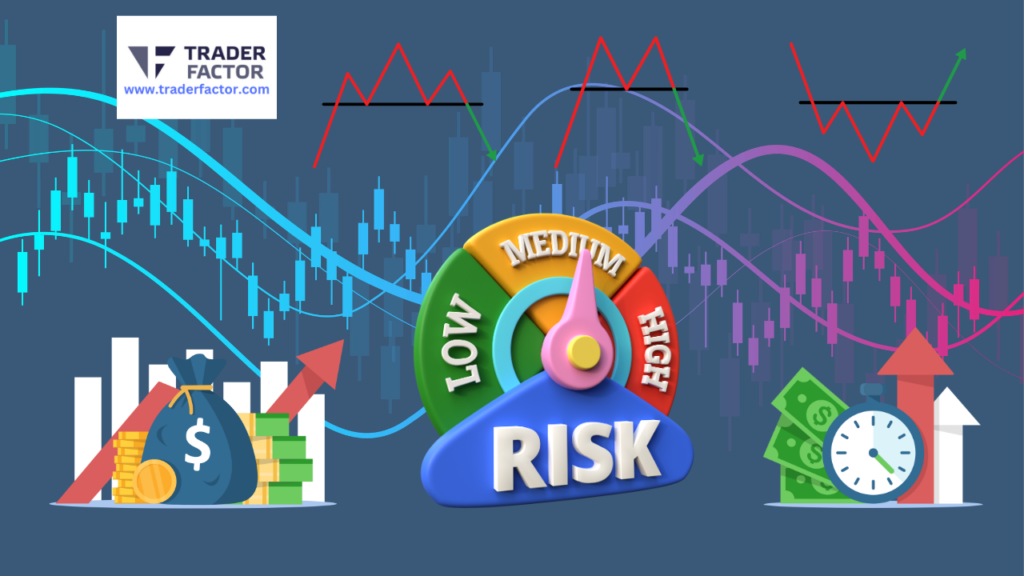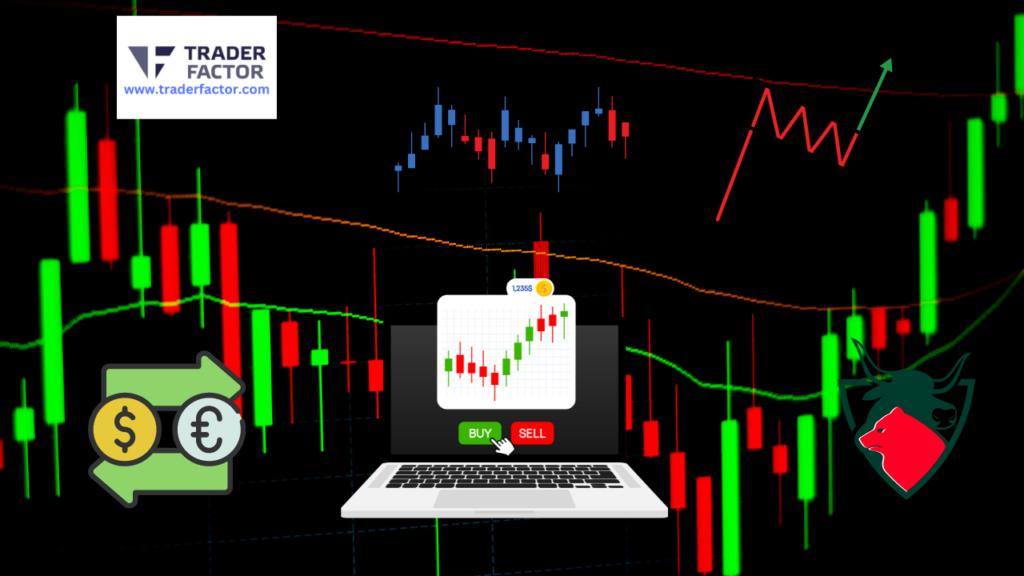Imagine you are a skilled detective, searching for hidden clues in the vast world of currency exchange. With the right strategies and techniques, you can become a master at navigating the forex market and maximizing your profits.
In this guide, you will discover the keys to success, from understanding market fundamentals to mastering technical analysis techniques. You will learn how to identify high-probability trade setups, effectively manage risk, and make smart entry and exit decisions.
By leveraging advanced chart patterns, using indicators, and incorporating automated trading systems, you can take your trading skills to the next level.
Get ready to unlock your full potential in the forex market and start making high-profit trades.
Key Takeaways
- Economic indicators provide valuable information about a country’s economy, and traders can use them to analyze the strengths or weaknesses of an economy.
- Mastering technical analysis techniques such as candlestick patterns, trend lines, and indicators enhances the ability to predict market movements.
- Identifying high-probability trade setups involves analyzing market trends and patterns, considering trade psychology and market sentiment, and developing criteria to filter potential trades.
- Utilizing risk management strategies, such as proper position sizing, diversifying trading portfolio, and conducting risk vs reward analysis, helps manage risk effectively and maintain profitability.
Understanding Forex Market Fundamentals

To understand Forex market fundamentals, you must grasp the concept of economic indicators. These indicators play a crucial role in fundamental analysis techniques, which are essential for successful forex trading.
Economic indicators provide valuable information about the overall health and performance of a country’s economy. They include data on employment rates, inflation, interest rates, GDP growth, and trade balance, among others.
Traders use these indicators to analyze the strengths or weaknesses of an economy and make informed trading decisions. For example, if an indicator shows a strong employment rate and GDP growth, it indicates a robust economy and may lead to an appreciation in the country’s currency.
On the other hand, a high inflation rate or a trade deficit might suggest a weakening economy and a potential depreciation of the currency.
By staying updated on economic indicators and understanding their impact on currency values, you can identify potential trading opportunities and manage your risk more effectively.
Therefore, mastering fundamental analysis techniques and keeping an eye on economic indicators is crucial for success in forex trading.
Mastering Technical Analysis Techniques

Now, let’s focus on mastering technical analysis techniques to enhance your forex trading skills.
Candlestick patterns for analysis are crucial tools that can help you identify market trends and potential reversals.
Additionally, learning how to draw trend lines and channels can assist you in understanding market direction and making informed trading decisions.
Lastly, utilizing indicators for market analysis can provide valuable insights into price movements and help you identify entry and exit points.
Candlestick Patterns for Analysis
You should frequently analyze candlestick patterns to master technical analysis techniques in Forex trading. Candlestick pattern analysis is an essential tool for identifying potential market reversals and making informed trading decisions.
By understanding and recognizing candlestick reversal patterns, you can gain valuable insights into market sentiment and potential future price movements. These patterns, such as doji, hammer, engulfing, and evening star, provide visual representations of market dynamics and can indicate when a trend may be changing direction.
By studying these patterns and their meanings, you can enhance your ability to predict market movements and increase your chances of making profitable trades.
Incorporating candlestick pattern analysis into your technical analysis toolkit will enable you to make more informed and strategic trading decisions in the Forex market.
Trend Lines and Channels
Start by incorporating trend lines and channels into your technical analysis toolkit to master high-profit Forex trading strategies and techniques.
Trend lines are drawn to connect the highs or lows of price movements, helping you identify market trends. They provide valuable insights into support and resistance levels, as well as potential breakout points.
Channels, on the other hand, involve drawing parallel lines around price movements to create a channel or range. This technique helps you analyze market trends and predict potential reversals or continuation of trends.
Indicators for Market Analysis
Incorporate indicators into your technical analysis toolkit to master high-profit Forex trading strategies and techniques.
Two important indicators to consider are Fibonacci retracement levels and analyzing market sentiment through news and social media data.
Fibonacci retracement levels are used to identify potential support and resistance levels in the market. By plotting these levels on a price chart, you can determine areas where the price is likely to reverse or continue its trend.
Analyzing market sentiment through news and social media data can provide valuable insights into the market’s psychology and help you make informed trading decisions. By monitoring news events and social media trends, you can gauge the overall sentiment toward a particular currency pair and adjust your trading strategy accordingly.
Identifying High-Probability Trade Setups

To identify high-probability trade setups, focus on analyzing market trends and patterns. By understanding trade psychology and market sentiment, you can increase your chances of finding profitable opportunities in the forex market.
Start by studying the current market trends and identifying patterns that have historically led to successful trades. Look for repeated chart formations, such as head and shoulders, double tops, or double bottoms, as these can indicate potential reversals or continuations in price movement.
In addition to analyzing charts, pay attention to trade psychology and market sentiment. Trade psychology refers to the emotions and behaviors of traders, which can influence the direction of the market.
Understanding the prevailing market sentiment can help you gauge the overall mood of traders and determine whether they’re bullish or bearish on a particular currency pair.

To identify high-probability trade setups, it’s important to have a systematic approach. Develop a set of criteria that you use to filter out potential trades and focus on those that meet your criteria. This can include factors such as the strength of the trend, the presence of key support or resistance levels, or the alignment of multiple technical indicators.
Remember, identifying high-probability trade setups isn’t about guaranteeing profits, but rather increasing the likelihood of success. It requires careful analysis, a deep understanding of market trends and patterns, and an awareness of trade psychology and market sentiment.
Utilizing Risk Management Strategies

To effectively manage risk in forex trading, you need to focus on two key strategies: proper position sizing and diversifying your trading portfolio.
Position sizing refers to determining the appropriate amount of capital to allocate to each trade based on your risk tolerance and account size.
Diversifying your portfolio involves spreading your trades across different currency pairs, timeframes, and trading strategies to reduce the impact of potential losses.
Proper Position Sizing
When properly managing risk in your forex trading, it’s crucial to utilize effective position sizing strategies.
Advanced position sizing techniques can help you optimize your trades and maximize your profits.
One important factor to consider is the risk vs reward analysis. By carefully assessing the potential risks and rewards of each trade, you can determine the appropriate position size that aligns with your risk tolerance and trading goals.
This involves analyzing factors such as the currency pair’s volatility, market conditions, and your own trading strategy.
Implementing proper position sizing techniques can help you avoid excessive losses and maintain consistent profitability in the long run.

Diversifying Trading Portfolio
You can enhance your forex trading success by diversifying your trading portfolio and utilizing effective risk management strategies.
Portfolio diversification involves spreading your investments across different currency pairs and other financial instruments. This strategy helps reduce the potential impact of any one trade or market event on your overall trading performance.
By diversifying, you can protect your capital from significant losses and increase the chances of achieving consistent profits.
Risk management is another crucial aspect of successful forex trading. It involves determining your acceptable level of risk and implementing strategies to limit potential losses. This can include setting stop-loss orders, using trailing stops, and regularly reviewing and adjusting your risk exposure.
Implementing Effective Entry and Exit Strategies

Mastering effective entry and exit strategies is essential for achieving high-profit results in Forex trading. The key to success lies in finding the right entry and exit timing to maximize profit potential. Timing is crucial in the Forex market, as it’s a fast-paced and volatile environment.
When it comes to entering a trade, it’s important to identify key price levels or patterns that indicate a high probability of success. This could involve using technical analysis tools such as trend lines, support, and resistance levels, or chart patterns. By entering at the right time, you increase your chances of capturing the maximum profit potential.
On the other hand, exiting a trade also requires careful consideration. It’s crucial to have a clear exit strategy in place to prevent potential losses and protect your profits. This can involve setting predefined profit targets or using trailing stops to lock in gains as the market moves in your favor.

Implementing effective entry and exit strategies requires discipline and constant monitoring of market conditions. It’s important to adapt your strategies to changing market dynamics and adjust your timing accordingly. By mastering these strategies, you can increase your chances of achieving high-profit results in Forex trading.
Developing a Consistent Trading Plan

To develop a consistent trading plan in Forex, focus on creating a detailed strategy that aligns with your financial goals and risk tolerance.
Developing a disciplined mindset is crucial in maintaining consistency in your trading approach. This involves setting clear rules and guidelines for yourself and sticking to them, even in the face of potential market fluctuations or emotional impulses.
In addition to a disciplined mindset, optimizing trade execution is also essential. This involves analyzing your trading process and identifying areas where you can improve efficiency and reduce errors. By fine-tuning your trade execution, you can minimize slippage, maximize profits, and reduce the impact of transaction costs.

To help you develop a consistent trading plan, consider the following table:
| Aspect | Description |
|---|---|
| Financial Goals | Identify your short-term and long-term financial objectives. |
| Risk Tolerance | Determine the level of risk you are comfortable with and willing to take. |
| Strategy | Develop a detailed plan that outlines your entry and exit criteria. |
| Risk Management | Implement measures to protect your capital and limit potential losses. |
| Review and Adjust | Regularly evaluate your trading plan and make necessary adjustments. |
Leveraging Advanced Chart Patterns

You need to understand how to identify profitable chart patterns and use them to your advantage in forex trading.
These advanced chart patterns can provide valuable signals and insights into market trends and potential trading opportunities.
Identifying Profitable Chart Patterns
Use a reliable indicator to identify profitable chart patterns and leverage advanced chart patterns for high-profit forex trading. One effective way to analyze price action and identify potential trading opportunities is by using Fibonacci retracement.
This tool helps you to identify key levels of support and resistance based on the Fibonacci sequence. By plotting these levels on your chart, you can identify potential areas where the price may reverse or continue its trend.
Additionally, you can leverage advanced chart patterns such as double tops, double bottoms, head and shoulders, and triangles to further increase your chances of making profitable trades. These patterns provide valuable information about market sentiment and can help you anticipate future price movements.

By combining these techniques with a reliable indicator, you can enhance your trading strategy and maximize your profits.
| Chart Pattern | Description |
|---|---|
| Double Tops | This pattern occurs when the price makes two consecutive troughs at approximately the same level, indicating a possible reversal in the market. |
| Double Bottoms | This pattern occurs when price makes two consecutive troughs at approximately the same level, indicating a possible reversal in the market. |
| Head and Shoulders | This pattern consists of a peak (the head) flanked by two smaller peaks (the shoulders), indicating a possible trend reversal from bullish to bearish. |
| Triangles | Triangles can be symmetrical, ascending, or descending. These patterns indicate periods of consolidation and suggest that a breakout is imminent. |
Utilizing Chart Pattern Signals
By incorporating advanced chart patterns into your trading strategy, you can effectively utilize chart pattern signals to increase your chances of identifying profitable forex trading opportunities.
Advanced chart patterns are powerful tools that can provide valuable insights into market trends and potential price movements. These patterns are formed by the price action on a chart and can help you predict future price movements with a high degree of accuracy.
By understanding and recognizing these patterns, you can make more informed trading decisions and increase your profitability. Some examples of advanced chart patterns include head and shoulders, double tops and bottoms, and triangles.

These patterns act as profitable trading indicators, giving you a clear signal to enter or exit a trade. By leveraging these advanced chart patterns, you can enhance your trading strategy and maximize your profits in the forex market.
Using Indicators for Profitable Trading

One effective way to enhance your profitability in forex trading is by regularly incorporating indicators into your trading strategy.
Indicators provide valuable insights into market trends and help you make informed trading decisions.
When using oscillators effectively, such as the Relative Strength Index (RSI) or Stochastic Oscillator, you can identify overbought or oversold conditions in the market.
These indicators measure the momentum of price movements and can help you determine when a currency pair is likely to reverse its direction.
By combining indicators for better analysis, you can confirm trade signals and increase the accuracy of your entries and exits.
For example, you can use a combination of moving averages and the MACD (Moving Average Convergence Divergence) indicator to identify both the direction and strength of a trend.

Additionally, you can use volume indicators, such as the On-Balance Volume (OBV) or Volume Weighted Average Price (VWAP), to gauge the strength of market participation and increase your confidence in potential breakout or reversal trades.
Remember to always test and fine-tune your indicator settings to match your trading style and preferences.
Incorporating Automated Trading Systems

To enhance your profitability in forex trading, incorporate automated trading systems into your strategy.
Automated trading systems offer several advantages that can help you improve your trading performance. One of the main advantages is the ability to execute trades automatically, eliminating the need for manual intervention. This can be especially beneficial for traders who are unable to monitor the markets constantly or who struggle with emotional decision-making.
Another advantage is the speed and efficiency of automated systems. They can analyze market conditions and execute trades much faster than a human trader, which can lead to better entry and exit points and increased profits.
When selecting the right trading system, it’s crucial to consider several factors. First, you should assess the system’s track record and performance. Look for systems that have a proven history of generating consistent profits over time.

Additionally, consider the system’s risk management capabilities. A good trading system should have built-in risk management tools to help protect your capital and minimize losses.
It’s also important to choose a system that aligns with your trading style and goals. Some systems may be more suitable for short-term traders, while others may cater to long-term investors.
Finally, consider the system’s level of customization and flexibility. A system that allows you to adjust parameters and adapt to changing market conditions can provide greater control and optimization.
Continuously Improving Trading Skills and Knowledge

Improve your forex trading skills and knowledge to unlock high-profit opportunities in the market. Continuously improving your trading skills is crucial in becoming a successful forex trader.
One area that requires attention is improving your psychology. Developing the right mindset is key to navigating the emotional rollercoaster that comes with trading.
It’s important to manage your emotions and avoid making impulsive decisions based on fear or greed. By learning to control your emotions and having a disciplined approach, you can improve your trading psychology and make better trading decisions.
Another aspect of continuously improving your trading skills is analyzing market sentiment. Understanding the market sentiment can give you an edge in predicting price movements.

By monitoring economic indicators, news events, and social media sentiment, you can gain insights into the market’s psychology. This can help you identify trends, spot potential reversals, and make informed trading decisions.
To continuously improve your trading skills and knowledge, it’s important to stay updated with the latest market trends and developments. Engaging in continuous learning through reading books, attending webinars, and joining trading communities can provide valuable insights and strategies.
Additionally, practicing in a demo account can help you refine your trading techniques without risking real money.
Frequently Asked Questions

What Are the Key Factors to Consider When Developing a Consistent Trading Plan?
When developing a consistent trading plan, factors to consider include risk management, market analysis, and emotional discipline. These elements will help you stay focused and make informed decisions to achieve profitability in forex trading.
How Can I Effectively Utilize Risk Management Strategies to Protect My Capital?
To effectively utilize risk management strategies and protect your capital, you need to implement measures like setting stop-loss orders, diversifying your investments, and using proper position sizing techniques.
What Are Some Advanced Chart Patterns That Can Be Leveraged for Profitable Trading?
To maximize profits in forex trading, you can leverage advanced chart patterns like the double top and Fibonacci retracement. These patterns indicate potential reversals in price, providing opportunities for profitable trades.
How Do Indicators Play a Role in Identifying High-Probability Trade Setups?
Using indicators for trend analysis and entry and exit signals can help you identify high-probability trade setups. By analyzing market data, indicators provide valuable insights that can guide your trading decisions and increase your chances of profitable trades.
Are There Any Recommended Automated Trading Systems That Can Be Incorporated Into My Trading Strategy?
Yes, there are recommended automated trading systems that can be incorporated into your trading strategy. Consider using automated trading software or algorithmic trading systems to enhance your profitability and efficiency in the forex market.
High-Profit Forex Trading Strategies
Conclusion
In conclusion, by understanding the fundamentals of the Forex market, mastering technical analysis techniques, and utilizing risk management strategies, you can unlock high-profit Forex trading strategies and techniques.
By continuously improving your trading skills and knowledge, incorporating advanced chart patterns, and using indicators for profitable trading, you can further enhance your trading success.
Lastly, by incorporating automated trading systems, you can streamline your trading process and increase your chances of making profitable trades.
Disclaimer:
All information has been prepared by TraderFactor or partners. The information does not contain a record of TraderFactor or partner’s prices or an offer of or solicitation for a transaction in any financial instrument. No representation or warranty is given as to the accuracy or completeness of this information. Any material provided does not have regard to the specific investment objective and financial situation of any person who may read it. Past performance is not a reliable indicator of future performance.
FOLLOW US



